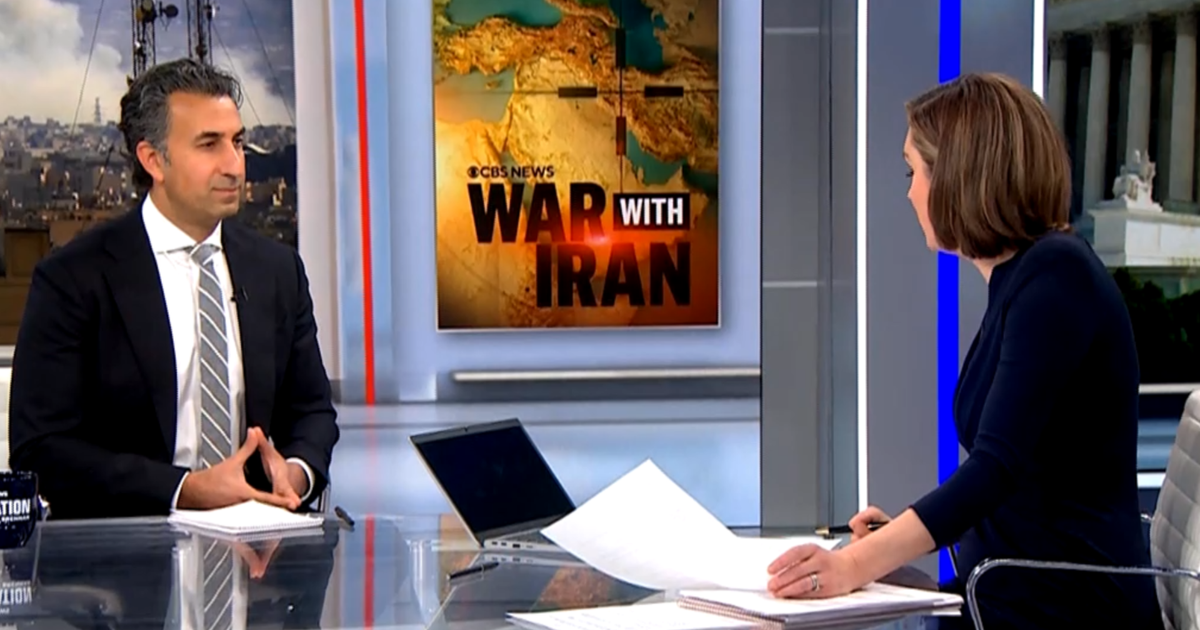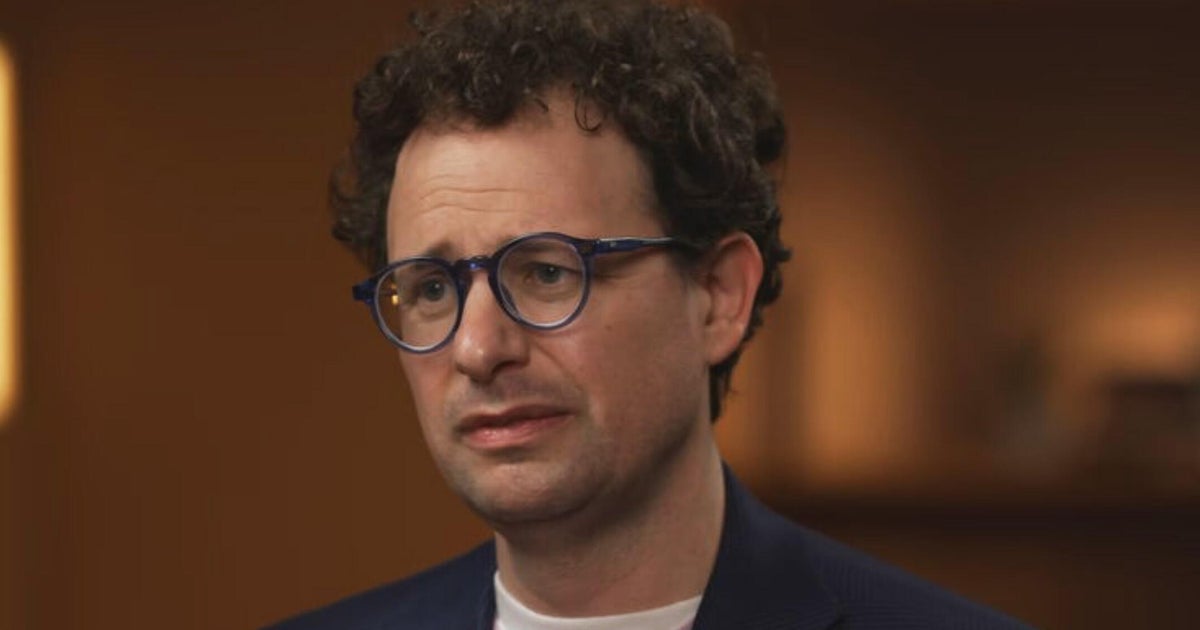Transcript: Chris Krebs on "Face the Nation," Oct. 2, 2022
The following is a transcript of an interview with CBS News cybersecurity expert and analyst Chris Krebs that aired on Sunday, Oct. 2, 2022.
MARGARET BRENNAN: Welcome back to FACE THE NATION. We're joined now by the former Director of the Cybersecurity and Infrastructure Security Agency, Chris Krebs. Good morning. Good to have you here in person.
CBS NEWS CYBERSECURITY EXPERT AND ANALYST CHRISTOPHER KREBS: Morning.
MARGARET BRENNAN: I want to ask you first about hurricane response, because you were involved back in 2017 with THE response to Hurricane Maria, which just devastated Puerto Rico. What are the biggest challenges you see right now, both for that island and for this devastation in Florida?
KREBS: Well, I think the the first issue is the devastation, as you mentioned, what structures what communities can actually take power, I think in general, and speaking with the power restoration Task Forces, they've done a good job of marshaling resources getting linemen and crews down into the areas that can actually be restored. But as you heard from the mayor, and the administrator, there are areas that simply just cannot take power right now. And it's going to take time to evaluate, see if they're condemned or otherwise. And so, but again, the- you know, the power teams have done a good job in Florida. And they've actually, I think, done a good job in Puerto Rico as well after Fiona, when you're looking at, you know, 10 days after Fiona 90% of the power is restored. In Maria, that took about seven months.
MARGARET BRENNAN: And they're still in many ways on the recovery track for Maria.
KREBS: Yeah, you know, I think, over the last few years, they have done a better job of management, of investment, and of maintenance. But now they're at a position where I think they have to think about upgrading the system, there's still a fairly antiquated, older system, and they do have to kind of move forward with that.
MARGARET BRENNAN: I want to ask you about infrastructure beyond hurricane of course, we are, what, 36 days from the midterms. You have large displacement now, people in Florida, is that going to have an impact on the ability to carry out elections?
KREBS: There are plans in place and you know, we heard the senator talk about Hurricane Michael, from 2018, which Mexico Beach was devastated. There are rules and systems in place that allow for some flexibility in how the elections are conducted. And they will ensure that those that want to vote can vote. If I've seen anything, it's election officials are natural crisis managers and really good at the resilient side of it.
MARGARET BRENNAN: Well, they have to be right now, given all the pressure is on them. Switching to the cyber front, so you were in office during the midterms in 2018, and Cyber Command was pretty explicit that they went on the offense to protect our midterm races at that time, taking out Russian operatives to deter spreading disinformation. We know they're watching what's happening this year. What does that look like? What is protecting our election against foreign interference look like?
KREBS: Well, you know, as I look at the concerns around the 2022 midterm elections, I have three primary areas of-of you know, focus. First, is the continued domestic efforts to undermine the process attack workers. The second is this increase in insider risk. And as that all kind of manifests and political instability here domestically, it gives a lot of opportunity and attack surface for the bad guys. We've seen over the last couple years, the foreign actors that is, we've seen the Iranians, we've seen the Russians, and even recently, we've seen the Chinese start to take some of the Russian plans, and it's almost Russification of Chinese Information Operations. So what I would look at is more, you know, plagiarizing domestic issues, and driving wedges into the discourse here in the U.S. probably not manufacturing, new narratives or anything like that, but instead really hitting on the issues that we're already talking about here. And just making them that much more heated.
MARGARET BRENNAN: Meta took down a small Chinese network trying to influence elections, this is the Facebook's sphere.
KREBS: Right.
MARGARET BRENNAN: Is that the prime platform for disinformation?
KREBS: Well, I think they're using a number of different techniques. And that's the Chinese we again, it's still fairly rudimentary and remedial in terms of the Chinese influence operations. Once they get a little bit more sophisticated. I think that's where they'rethey're probably going to have a greater impact. But it's not just online. It's not just the social media platforms. They're actually working at the local levels to support individual candidates. And this is some reporting, I think that may come out in the near future, but it's the Chinese have been very, very active in a local corruption level, where the Russians are more focused at the top on, you know, the more disrupting the election process. A good friend in the intelligence community has said, Russia is the hurricane, China's climate change in the sense of political interference.
MARGARET BRENNAN: the sort of slow creeping, coming up on you.
KREBS: Yep.
MARGARET BRENNAN: I just want to come back, you said insider risk to U.S. elections. What do you mean by that?
KREBS: Well, it's actually we're seeing actual election workers that have been swept up in the continued efforts to delegitimize the 2020 election, and now they're on the inside. They're posing a risk we've seen in Mesa County, Colorado, Coffee County, Georgia, Antrim County, Michigan, where workers have allowed access by unauthorized people into the system in access to equipment. And even just the other day in the primaries, we saw that there was a worker that plugged the USB drive into a machine, and now those systems are had been rendered or taken out of service. So we actually, rather than just the foreign interference threats that I think we really had to think about in '18, and '20. Now we have actual insiders, we have election workers that are posing a risk to the process itself.
MARGARET BRENNAN: Well that's terrifying. Why- it's- so part of the balance for anyone who was in a role like you had, how much do you publicize, how much do you draw attention, and at what point does that undermine confidence rather than raise confidence in integrity?
KREBS: That's the challenge.
MARGARET BRENNAN: Is the administration doing enough on what you just laid out?
KREBS: Well, unfortunately, I don't think that there are a lot of tools right now available to counter both threats to election workers. And we continue to see death threats and under intimidation means against election workers, but then election workers themselves that have been, again, swept up into the process. So the tools aren't necessarily there. We do need local law enforcement, I think to get more involved in investigating threats, protecting election workers themselves, ensuring that they're not being doxed, or their public information or their personal contact information is being released so they can get- so they get more threats. So this is an area that I think Congress needs take a hard look at, are the right deterrence measures in place from criminal statutes. And then do we have the investigation techniques? It is, you know, I personally have received a significant number of death threats and other-other threats. And some of them come in through anonymous- through anonymous means like protonmail. We do need more attention on these threats. Otherwise, we're going to see a shortage of election workers.
MARGARET BRENNAN: That is quite a warning. Chris, thank you for joining us.



